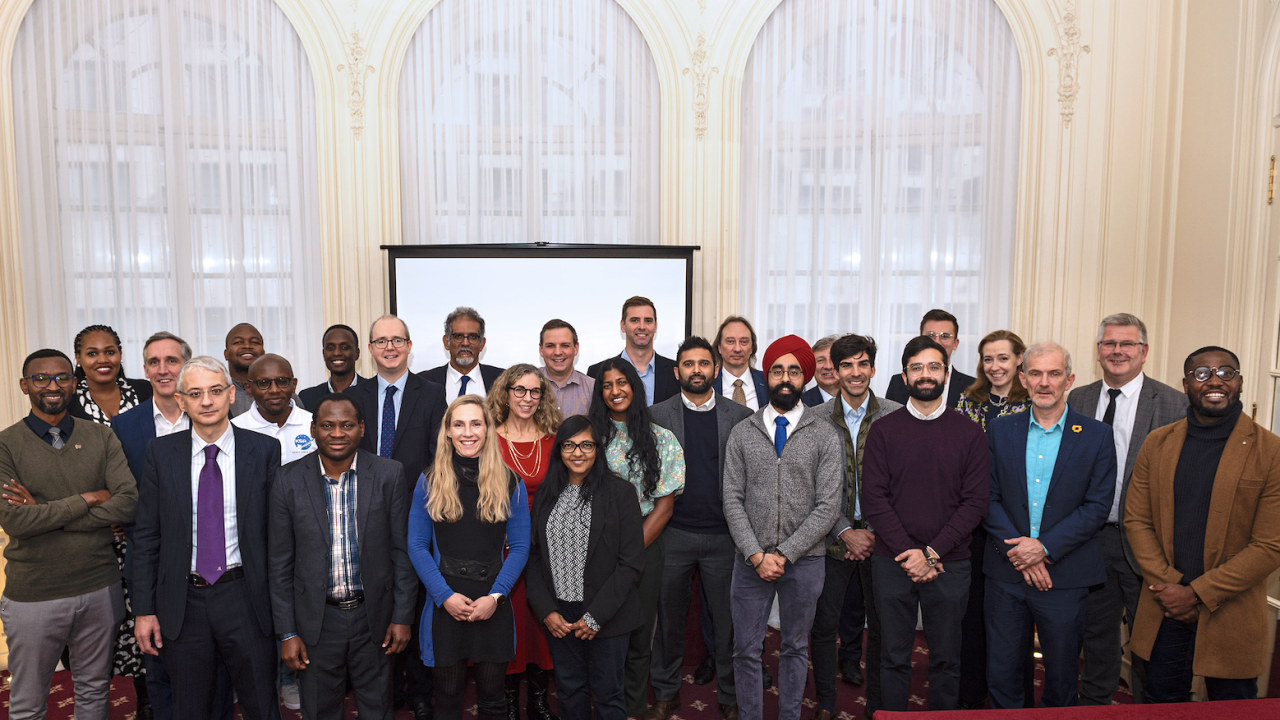How space can help Africa reap its rewards

Africa has the potential to feed the world. But low productivity has been a major characteristic; we get around one-quarter of what is possible elsewhere.
That was the sobering comment from Dr Jonas Chianu, chief agricultural economist at the African Development Bank, as he opened the Aerospace in Africa session on space and how it could benefit the continent.
A lack of science and good practices meant that African farmers typically produced much less than their equivalents in Asia, Latin America and the developed world, he said. How could the food output of Africa be improved?
In recent years, an increasing number of African countries have made ambitious ventures into outer pace. In January 2016, as part of the African Union’s (AU) heads-of-state summit, the organisation adopted the African space policy and strategy, which outlines the continent’s ambition to develop and exploit its space resources, with the main objective of contributing to Africa’s socio-economic development.
A panel of speakers looked at how space technology could provide answers to Africa’s most pressing problems, such as food security, transportation and healthcare.
A specialist AU technical committee has drafted documents on space policy, strategy and status of the continent’s ‘space identity’. However, said Abroulaye Fofana, permanent secretary, State Action at Sea from Cote d’Ivoire, he had not seen this being implemented on the ground. “Greater awareness of how to use technology to improve our world is necessary,” he added.
Space technology (and new-generation unmanned aerial vehicles) can be used to pinpoint areas where lack of nutrients in the soil is hampering the growth of crops, said Chianu. This would allow ground-based specialists to provide the necessary fertilisers or other chemicals to local farmers. Crop yields were already routinely monitored by such means.
Satellite-mounted sensors also allow countries to work with the minerals industry to conduct geological surveys and map entire countries for mineral deposits.
The value of these ‘geo-intelligence services’ in Africa, across all sectors, was reckoned to be about to triple from a 2012 figure of $40 million to $150 million by 2020.
More immediately, different space-based sensors can be used to help monitor natural disasters or to tackle insurgencies in African nations; the accuracy and definition of sensors can be used to track insurgents, with that data being transmitted to government forces, allowing them to intercept rebels.
Several speakers said there were hurdles to overcome before African nations could really start to use satellites to their benefit. “There are so many barriers,” said Dr Kasirim Nwuke, chief, new technologies and innovation, with the United Nations Economic Commission for Africa. “Intellectual property is a great constraint. And you can’t use the Chinese model of imposing a strategy on private industry.”
However, Fofana disagreed: “I really don’t think there’s a barrier to developing space technology in our countries. I’m from the maritime sector; we’re already using a lot of services from the satellite sector for the identification of ships and surveillance. A lot of sectors are using satellites today in agriculture and forestry. It’s one of the most cost-effective technologies to address some of our challenges.”
Morocco, for example, which is the world’s 13th largest producer of fish (and the biggest in Africa) has for some years used satellite imagery to tackle illegal or unregulated fishing. From 2013-15, due largely to the deterrent effect of this satellite surveillance, the number of fishing offences decreased from 641 to 404.
This enhanced protection contributed to new interest from local and foreign investors in Morocco’s fishing sector
James Hinds, director of strategy development, space systems with Airbus, agreed with Fofana that the greater use of space technology was within the grasp of African nations: “The cost of launch and of spacecraft has come tumbling down; the cost of how we use that data has come down. We just have to do it.”
Stay up to date
Subscribe to the free Times Aerospace newsletter and receive the latest content every week. We'll never share your email address.

